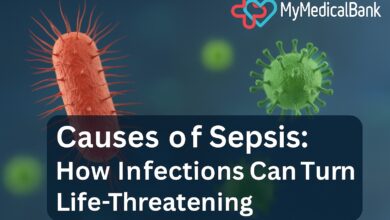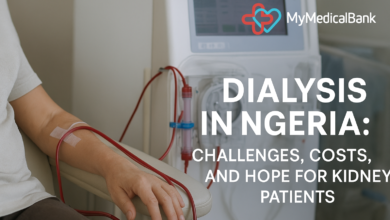Let’s Talk Periods: Myths, Facts & Menstrual Hygiene Tips You Need to Know
Period Power: 3 phases Every Girl and Woman Should Know About Menstrual Health & Hygiene

Menstruation, also called a period, is a natural part of life for girls and women after puberty. It usually happens once a month. During this time, the body sheds the thickened lining of the uterus, which comes out as blood through the vagina. This happens when there is no pregnancy. A period typically lasts between 3 to 8 days, and for most women, it follows a regular monthly cycle.
Phases of the Menstrual Cycle
1.Follicular Phase (Days 1–14)
This phase starts on Day 1, which is the first day of your period.
While your body is shedding the old lining of the uterus (your period), your ovaries are getting ready to release a new egg.
The brain sends out a hormone called FSH (follicle-stimulating hormone), which helps a few small sacs called follicles grow in the ovaries. Each follicle contains an egg.
One follicle becomes dominant, and its egg matures. This follicle also makes estrogen, which helps thicken the uterine lining again.
Around Day 12, estrogen levels get high and trigger a spike in two hormones LH and FSH leading to the release of the mature egg.
2. Ovulatory Phase (Around Day 14)
The egg is released from the ovary, this is called ovulation.
The egg travels down the fallopian tube, where it can be fertilized if sperm are present.
The empty follicle that released the egg becomes the corpus luteum.
3. Luteal Phase (Days 14–28)
The corpus luteum now produces progesterone, a hormone that helps keep the uterine lining thick in case of pregnancy.
If the egg is fertilized, progesterone levels stay high, and the lining is kept in place.
If the egg is not fertilized, the corpus luteum breaks down, progesterone drops, and the lining starts to shed, which leads to your next period.
Common Period Taboos
Many cultures still hold myths and taboos about menstruation. One common belief is that women are “impure,” “dirty,” or even “sinful” during their period.
In some places, girls and women are even discouraged from washing or touching their private parts during menstruation, out of fear they might “contaminate” water, especially in shared or communal bathing areas.
- But the truth is:
Menstrual blood is not dirty it’s just a natural body fluid, like sweat or saliva.
Good hygiene is very important during your period.
Bathing regularly actually helps prevent infections and keeps you healthy.
8 Top Menstrual Hygiene Tips Every Woman Should Know
Choose the Right Sanitary Product
There are different menstrual hygiene products like sanitary pads, tampons, and menstrual cups. It’s important to pick what suits your body best and stick to one brand at a time to avoid discomfort. Tampons should be chosen based on how heavy your flow is.
Change Your Pad or Tampon Regularly
Menstrual blood can carry bacteria once it leaves the body, so it’s important to change pads every 6 hours and tampons every 2 hours. Even if your flow is light, damp pads can still cause infections or rashes if left on too long.
Bathe Regularly
Some people believe women shouldn’t bathe during their period, but that’s a myth. Taking a warm bath helps you stay clean, relieves cramps, and boosts your mood. It’s one of the best ways to feel better during your period.
Wash Yourself Often
Menstrual blood can stay around your genitals and cause odor or discomfort. It’s important to wash or gently wipe your vaginal area before changing to a new pad to stay clean and fresh.
Avoid Soaps and Vaginal Products
Your vagina naturally cleans itself, so using harsh soaps or hygiene products can upset the balance and cause infections. Just use warm water to clean the area gently.
Dispose of Used Products Properly
Wrap your used pads or tampons well before throwing them in the bin. Never flush them down the toilet, as they can block pipes. Always wash your hands after disposal to avoid spreading germs.
Be Prepared On the Go
Always carry extra pads or tampons in a clean pouch, tissues, hand sanitizer, water, and a light snack during your period. Staying prepared helps you manage your hygiene and comfort while on the move
Don’t Combine Multiple Products
Using two pads or mixing a pad with a tampon might seem like extra protection, but it’s not a good idea. It can lead to infections or rashes, and it’s better to change one product regularly instead.
Menstruation is a natural and healthy part of life. Understanding your cycle, practicing good hygiene, and letting go of outdated taboos can make your period a lot more manageable and comfortable. Whether you’re at home, school, or on the go, being informed and prepared helps you take charge of your menstrual health with confidence. Let’s normalize the conversation around periods because knowledge is power, and your health matters.
Your cycle, your control. 💪 Record your menstrual health on the PHR App and stay informed



